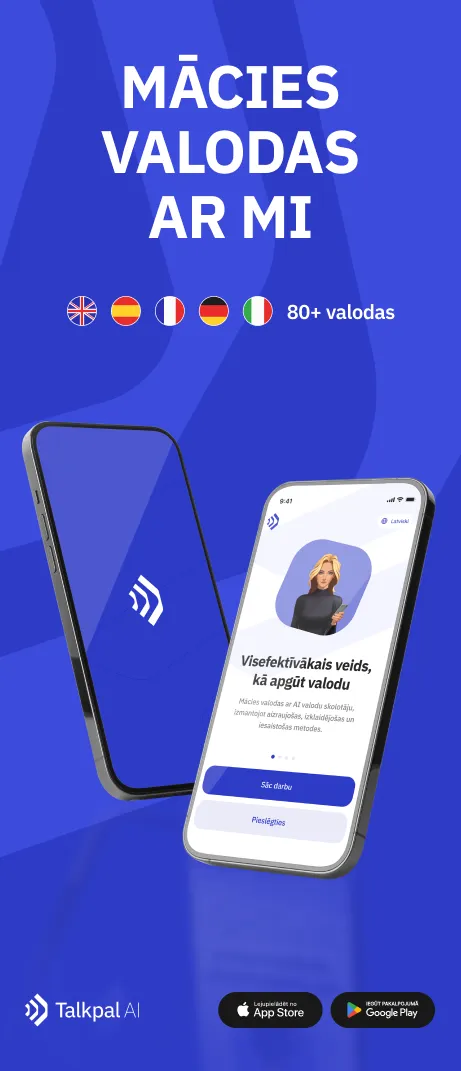Laiku izvēle un darbības vārdu formas
2. They *went* to the park yesterday. (Pagātnes vienkāršais laiks, darbības vārds “go”)
3. I *have* finished my homework. (Tagadnes perfektā forma, darbības vārds “to have”)
4. We *are* going to the cinema tonight. (Nākotnes plāns ar “be going to”)
5. He *plays* football every weekend. (Vienkāršais tagadne, darbības vārds “play”)
6. The sun *rises* in the east. (Vienkāršais tagadne, ierasti notiekoša darbība)
7. You *were* very tired last night. (Pagātnes vienkāršais laiks, darbības vārds “to be”)
8. She *has been* working here for five years. (Tagadnes perfektā ilgstošā forma)
9. I *will* call you tomorrow. (Nākotnes vienkāršais laiks ar “will”)
10. They *were playing* football when it started to rain. (Pagātnes turpinātā forma)
Prievārdu lietošana un jautājumu veidošana
2. She is interested *in* learning languages. (Prievārds pēc darbības vārda “interested”)
3. We walked *through* the park yesterday. (Prievārds, kas norāda kustību cauri vietai)
4. *Do* you like coffee? (Palīgdarbības vārds jautājumā tagadnē)
5. Where *does* he live? (Palīgdarbības vārds jautājumā trešajā personā vienskaitlī)
6. What *are* they doing now? (Palīgdarbības vārds jautājumā tagadnē turpinātā formā)
7. She arrived *at* the airport on time. (Prievārds, kas norāda konkrētu vietu)
8. I will meet you *after* lunch. (Prievārds, kas norāda laiku)
9. *Did* you see that movie last week? (Palīgdarbības vārds jautājumā pagātnē)
10. He talked *about* his new job. (Prievārds, kas norāda tēmu)










